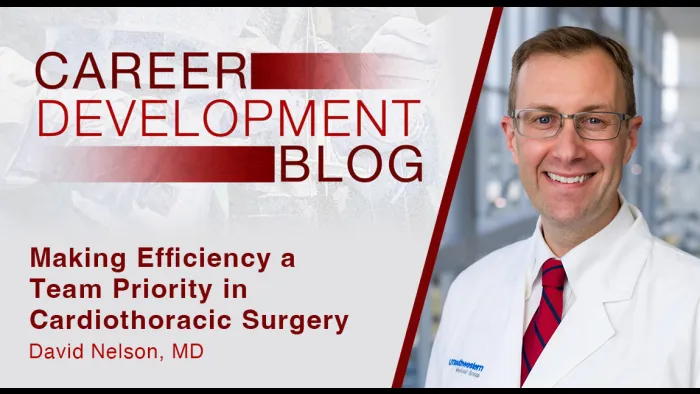Efficiency can be misunderstood as simply working faster. In reality, true efficiency in the operating room is about making every movement count, communicating clearly so that needs are understood, understanding the needs of the team, and simplifying the system. Efficiency is a collective achievement—one that the surgeon is uniquely positioned to lead, and it requires a coordinated, high-performing team.
